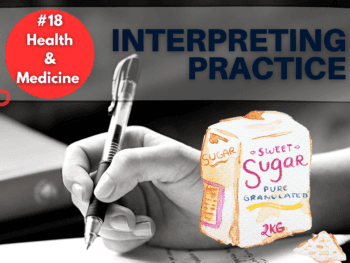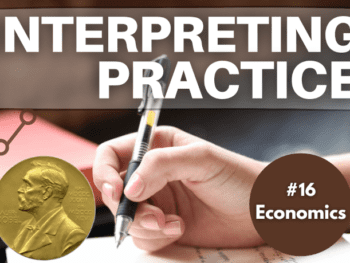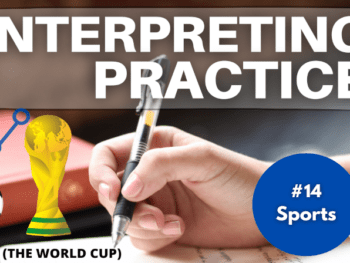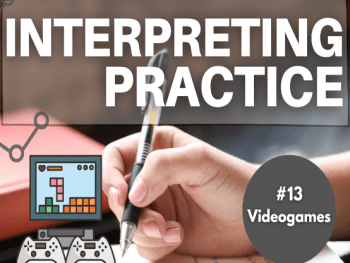Note-taking exercises are an essential part of an interpreter’s training. This speech on health, medicine and lifestyle will help you practice your consecutive interpreting skills. Note: The Speech starts STRAIGHT AWAY!
Topic(s): Medicine, Health, Diseases, Sleep, Lifestyle
Terms: diseases of modern life, insomnia, commute, peak hour, sleep self-assessment, Sleepio, Big Health, sleep coach, ‘Sleep’, Nick Littlehales, R90 approach, R.E.M. sleep, sleep patterns, sleep cycle, night routine
Sources:
- ‘Sleep’, by Nick Littlehales | BUY it here (UK 🇬🇧) or here (US 🇺🇸)
- NHS: https://www.nhs.uk/conditions/insomnia/
Also check these books to learn and practice interpreting.
Good For Practicing:
- Interpreting note-taking
- Simultaneous interpreting
- Non-standard accents
Also available on Speechpool.
If you’ve found this post helpful or think it could be useful to a friend who perhaps is – or is planning to become – an interpreter, please kindly consider buying me a coffee by using the button below:
I put all my heart and soul into the content I produce in order to help my fellow linguists set foot in the industry. Most of what I do is available to everyone for free.
Donating is 100% optional, but greatly appreciated. A short espresso will do! ☕
Script*:
*Please check the script only after you’ve done the note-taking exercise, otherwise that’s cheating! 🙂
‘The modern world has brought us a great deal of progress, innovation and all sorts of technological improvement that have made our lives so much easier.
At the same time, our new, fast-paced lifestyle has also brought us new issues, such as the so-called diseases of modern life. So today I would like to say a few words about a health issue that’s affecting an increasing number of people in the developed world, and that is insomnia.
As a matter of fact, to say our lives have become fast-paced is an understatement. And I think many of you know the feeling. You wake up before the sun’s up, get ready for work in a short timeframe and rush towards the station to get on a super crowded peak hour train that will take you to the office; you don’t have time for a proper breakfast, and you feel stressed throughout your commute due to the lack of comfort or just because the trains are delayed again, and you’re concerned you’ll arrive late to work.
You spend your day in your stressful job, perhaps struggling to meet your deadlines due to an overloaded workflow. Sometimes you’re struggling so much you end up taking more cups of coffee than you should. You may even eat your lunch at your desk, rather than having a proper break.
You stay late at work because you couldn’t manage to complete all your scheduled tasks. It’s already pitch back when you finally leave the office, and there you go again, waiting for another train packed with people.
When you finally get home, you may have a shower and eat your dinner. It’s now almost time to go to bed, so there’s not much else you can do other than try to rest and get ready to repeat all of that the next day.
But unfortunately, bed time has become a particularly daunting activity. Many of us are no longer able to switch off at night, as our brain remains active regardless of how exhausted our body feels.
It’s estimated that a third the British people will have episodes of insomnia at some point. That’s more than 20 million people.
In fact, sleep problems have become so common that the NHS has even made an online sleep self-assessment tool available on their website. This online test is called Sleepio, and has been created by Big Health, a private company that specializes in mental health.
That’s another thing. The fact that insomnia and sleep-related disorders become so prevalent in the developed world has created a massive market demand. People are desperate to find a cure for their sleep problems, so they look for pills, courses, medical advice or even personal sleep coaches.
That’s right: there are now consultants, known as sleep coaches, that examine your lifestyle and sleep conditions and design a programme to help you sleep better.
Personally, as much as I wanted, I have never been able to afford a sleep coach when I probably needed one. But thankfully, some sleep coaches have been kind enough to write books about what they do.
That’s how I came across this little book titled ‘Sleep’, by Nick Littlehales. He’s been a sleep coach for more than 2 decades, and has helped several professional athletes and football players with their sleeping habits in order to maximise their performance.
In his book he teaches what he calls the ‘R90’ approach, which is founded on the concept of circadian rhythms.
A circadian rhythm is a natural human process that regulates our sleep-wake cycles. While we sleep, our brain goes through different stages, from Light Sleep to R.E.M. sleep. It is believe that a full sleep cycle, on average, has a 90-minute duration. That’s where R90, the program’s name, comes from.
The most important take-away from all this is that you should measure your sleep patterns not by the number of hours, but by the number of 90-minute sleep cycles. And that also means that you should plan your bed time based on what time you usually wake up and how many cycles of sleep you need per night in order to wake up fully recovered.
For instance: say you have to wake up at 7am every day. If your goal is to sleep 5 cycles per night, all you have to do is subtract 7 hours and half (remember: if 1 cycle is 90 minutes, 5 cycles is 7 hours and 30 minutes.) So you ideal time to fall asleep, while benefiting from 5 full sleep cycle, is half-past eleven PM.
One thing that I learned is that this is easier said than done. It took me several weeks until I finally managed to do this right… or should I say, more or less right. Nick gives several other recommendations on how we should schedule our night routine in order to sleep better, or in some cases, to simply manage to fall asleep.
But my main conclusion is that in the modern world, like so many other things, sleep has almost become a skill. It’s something we can get better at by practicing if we follow the right principles.’














 Translation Internships: Are They Really Worth It? (The Truth)
Translation Internships: Are They Really Worth It? (The Truth)